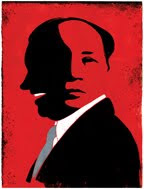
Why should we care enough about a decades-old political event to invest the resources necessary to create this new production of Nixon in China? Don’t political tempests of the day fade through the lens of time, not to mention musical styles? Musically, I believe the work is important and enduring. As for subject, I turn to celebrated Canadian historian and author Margaret MacMillan, from her book Nixon in China:
“Of course it matters...Asia will be at the centre of the world again. Yet there will be no peace for Asia or for the world unless those two great Pacific powers, the one supreme today and the other perhaps tomorrow, find ways to work with each other. To understand their relationship we need to go back to 1972, to the moment when it started anew.”
MacMillan will be in Vancouver for the Canadian premiere of Nixon in China in March, and will appear at two events: a March 16 literary luncheon and on March 17 in the evening on Granville Island – more details available on our website.
Right now I’m reading her newest book, The Uses and Abuses of History (Penguin Canada, 2008) and find I am marking it up as I find nugget after nugget of wisdom pertaining to my work on our Nixon production. She states in her introduction that North Americans find it hard to recognize that history is not a dead subject, and tells us “[I]t is wiser to think of history, not as a pile of dead leaves or a collection of dusty artifacts, but as a pool, sometimes benign, often sulphurous, which lies under the present, silently shaping our institutions, our ways of thought, our likes and dislikes.”
In her early chapters “The History Craze” and “History for Comfort,” I found a couple of observations quite germane to our production. MacMillan speaks to the role history plays in how we think of ourselves, and that “[E]ven when we think we are striking out in new directions, our models often come from the past. The Chinese Communists scorned China’s traditional society, but their top leaders chose to live right at the heart of Beijing where the Imperial Court had once been. Mao Zedong himself withdrew into mysterious seclusion, much as the emperors had done over the centuries.”
In her discussion regarding the use of history for comfort, MacMillan notes that “[P]olitical leaders have always known the value of comparing themselves to great figures of the past[;]” she goes on to write, “Mao Zedong liked to point to the parallels between himself and the Qin Emperor who created China in 221 B.C.”
I’d like to mention one more idea MacMillan pursues in the chapter “History for Comfort” that relates closely to Nixon in China. She writes:
“If history is the judge to which we appeal, then it can also find against us. It can highlight our mistakes by reminding us of those who, at other times, faced similar problems but who made different, perhaps better decisions. President Bush refused to deal with Iran, even though it has huge influence in the Middle East and, in particular, in Iraq. His critics remembered when another American president faced a situation where the United States was bogged down in an unwinnable war and was losing much of its authority in the world. President Richard Nixon decided that he had to get the United States out of Vietnam and rebuild American prestige, and that the key to doing both lay in Beijing. Even though the United States and the People’s Republic were bitter enemies that had had virtually no contact with each other for decades, he boldly embarked on an initiative to bring about a mutual recognition and, so he hoped, mutual help. When I was lecturing in the United States about Nixon in China, a question I was asked repeatedly was, if Nixon were president today, would he be going to Teheran for help in getting the United States out of Iraq?”
Thought-provoking questions. Challenging ideas. I recommend reading Margaret MacMillan’s book The Uses and Abuses of History. I look forward to hearing her speak about these and related issues when she is in Vancouver in March for Nixon in China, produced by Vancouver Opera: demonstrating the relevance of opera to our 21st century lives.
~ James W. Wright, General Director

0 Response to "Richard Nixon Goes to Beijing"